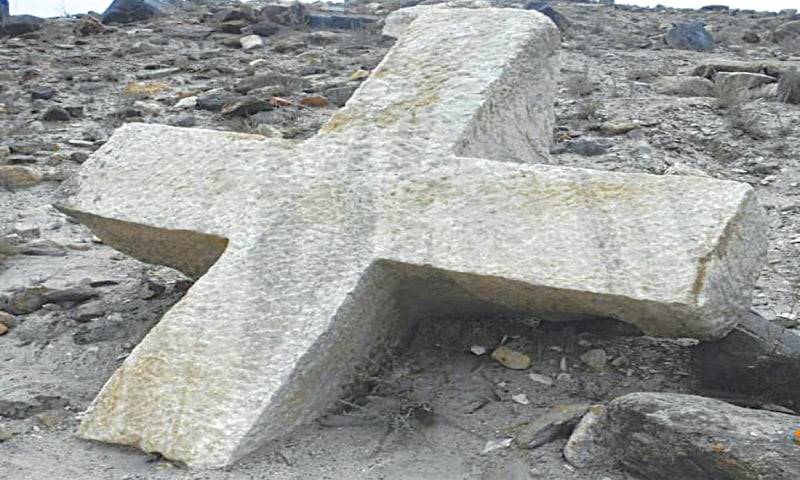While the cross is yet to be subjected to carbon dating, initial analysis traces its origins to between 900 and 1,200 years ago.
A massive, seven-foot tall cross was discovered in the Pakistani region of Baltistan by a team of researchers from the University of Baltistan, The Indian Express reports.
The cross, carved from marble and weighing about 3 or four tonnes, the cross was described by the newspaper as probably "the largest one of its kind found in the Subcontinent".
While the artefact in question is yet to be subjected to carbon dating, preliminary analysis have apparently identified it as a so called "Nestorian cross" from sometime between 900 and 1,200 years ago.
Further examination of the cross also reportedly uncovered some "Buddhist influences", while Wajid Bhatti, research scholar of Pakistan studies at Quaid-i-Azam University, linked the artefact to the Saint Thomas Christians.
"This is a typical Thomanian cross, which is plus-shaped. Thomanian Christians are those who trace their origins to the proselytising activities of St. Thomas, who was one of the 12 apostles of Jesus Christ. Later, Thomanian Christians intermixed with Nestorian Christians. Northern Pakistan had several Nestorian Christian settlements," Bhatti told the newspaper.
The cross' discovery is expected to shed new light at the history of Christianity in northern Pakistan "before the advent of the colonial forces".
"This is a typical Thomanian cross, which is plus-shaped. Thomanian Christians are those who trace their origins to the proselytising activities of St. Thomas, who was one of the 12 apostles of Jesus Christ. Later, Thomanian Christians intermixed with Nestorian Christians. Northern Pakistan had several Nestorian Christian settlements," said Dr. Muhammad Naeem Khan, Vice-Chancellor of University of Baltistan and one of the researchers who made the find.






